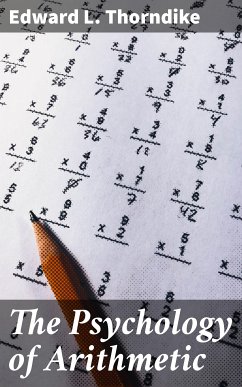Edward L. Thorndike's 'The Psychology of Arithmetic' delves into the complex relationship between psychology and mathematical reasoning, examining the cognitive processes involved in mathematical problem-solving. Thorndike's meticulous exploration of how individuals think and learn in the realm of arithmetic provides valuable insights into the educational implications of understanding the psychological components of mathematical tasks. Written in a clear and concise style, the book combines empirical research with theoretical perspectives to offer a comprehensive analysis of the cognitive mechanisms underlying arithmetic abilities. Thorndike's integration of psychology and mathematics in this work reflects his pioneering efforts to bridge the gap between these two disciplines, making a significant contribution to both fields. Readers will find 'The Psychology of Arithmetic' to be a thought-provoking and enlightening read, offering a unique perspective on the intersection of psychology and mathematical thinking, making it a must-read for educators, psychologists, and anyone interested in the cognitive processes involved in arithmetic reasoning.
Dieser Download kann aus rechtlichen Gründen nur mit Rechnungsadresse in A, B, BG, CY, CZ, D, DK, EW, FIN, F, GR, H, IRL, I, LT, L, LR, M, NL, PL, P, R, S, SLO, SK ausgeliefert werden.









